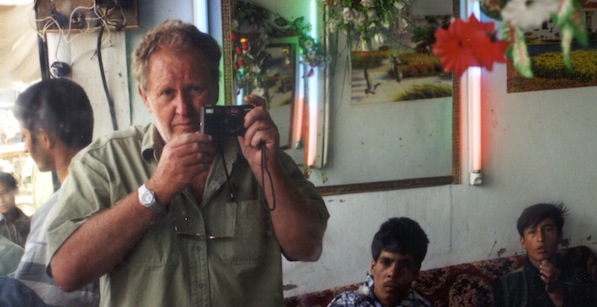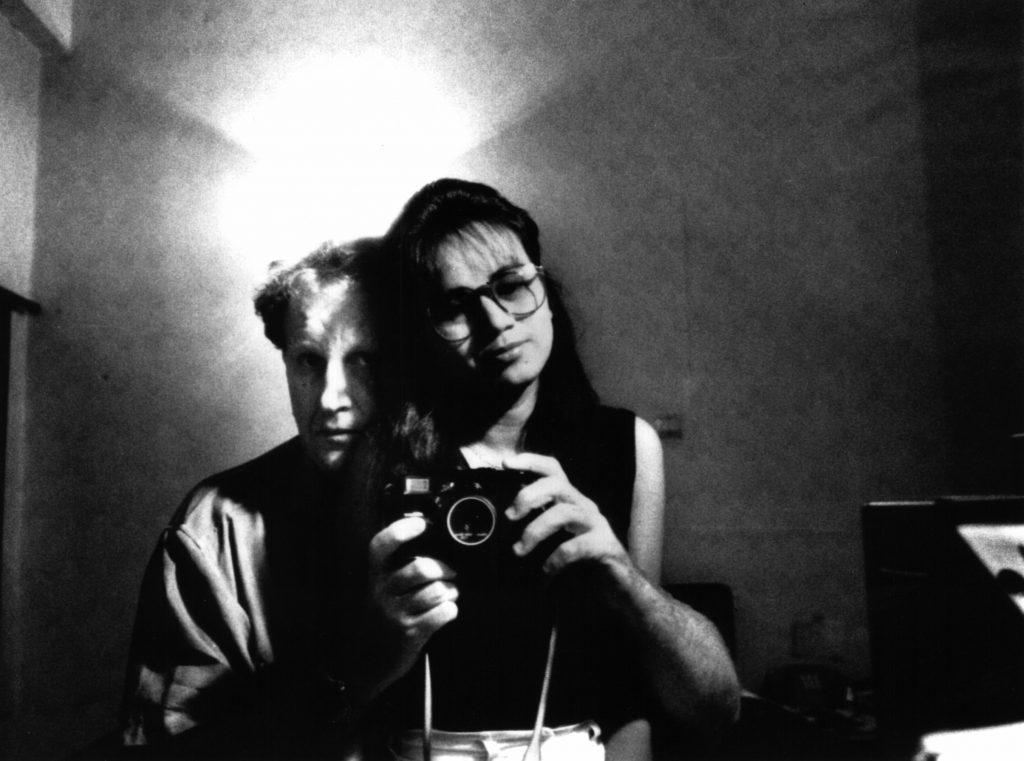No one cautioned me against dating a filmmaker—I imagine others viewed it as an obvious hazard, like walking into traffic or eating old mayo—it’s just something critics oughtn’t do. So when I started dating one early in 2010 my anxieties were unexplored—though I had seen a film in graduate school that cued some reason for strain.
Dennis O’Rourke’s documentary The Good Woman of Bangkok was a valentine to a Thai prostitute that seems to prove a director’s love can only promise to exploit things. In it, O’Rourke goes on holiday and falls for a sweet and sad call girl, a young woman with a cross eye who seemed to entertain his camera and inquisitions despite the fact neither of them spoke the other’s language. (O’Rourke is also known for his interest in decolonization.) The affair is tragic for them both, but clings like infatuation—they were both young, and unhappily experienced. Everyone who sees the film notices how desperately O’Rourke loves this girl who, like his title, was borrowed so extensively she lost something of herself. The film suggests in love, as in documentary, objectification is a natural casualty. No one said love was free.
On an early date, my director/boyfriend (then almost-boyfriend) came to visit me after teaching a film studies class at DeAnza College. I was screening Vertigo and he arrived in time for me to show off the interior of the school’s projection booth just as Judy was crying over Scotty’s desk. I closed the door and he ominously said, “You realize that’s what directors do.” Worse, I knew he had a thing for Jimmy Stewart, the man everyone wants to forgive even as he’s destroying a woman in hopes of transforming her into his last girlfriend. I was divorced, this man was divorced and his statement scared me sick.
I went looking for The Good Woman of Bangkok—it’s funny now to realize I saw it as an antidote—but it was completely unavailable. I wrote to the Roxie, the local theater that’d last played the film, and the programmer suggested I reach out directly to the filmmaker. An Australian documentarian with a collegiate following and a hefty name in his native country, O’Rourke seemed to have rights to the DVD—or this is what was suggested by our email exchange, which was, in all fairness, too brief for such details.
My note to him said I hadn’t found the film anywhere. He said if I told him the nature of my request he’d quote me a price. When I revealed my reason and added that the BF was anticipating a festival premier for his third feature (a film about sex traffickers, also shot in a language he didn’t speak), O’Rourke wrote me the following:
Hello Sara,
That is a reasonable request!
I had a look on YouTube. It’s (the feature premiering) stylistically brilliant. My 20-year-old film might not impress you so much today.
If you can watch a PAL version, just give me your address and I’ll put in in the mail.
Kind regards,
Dennis
I offered to pay. He declined and called it a gift. I pulled out my Emily Post and wrote a short but direct thank you note that I slipped in my bag and fully expected to send him but never did—I regret the hell out of that. I remember last year, when I moved the crumpled Crane envelope from my bag to my glove compartment I stared at it and wondered how I could recover my error. Somehow O’Rourke ushered in something I never told him about. It’s only now I remember I offered him a drink. His last email: “I’ve sent the DVD. Sorry, I’m not on facebook but I look forward to the drink.”
Dennis O’Rourke died of Cancer on June 15 in his home in Cairns, his partner and five children surrounding.





